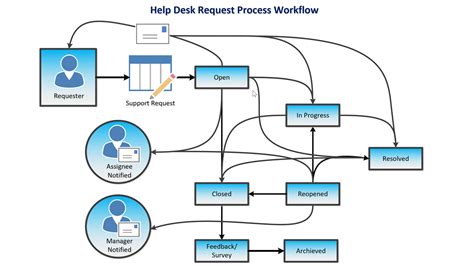In today’s customer-centric world, exceptional service is no longer a luxury, it’s a necessity. Help desk software empowers businesses to streamline their support operations, improve agent efficiency, and ultimately, elevate the customer experience. But with a plethora of options available, choosing the right help desk software can be a challenge. Here’s a breakdown of the top 10 contenders in the help desk software arena, designed to equip you with the knowledge to make an informed decision:
1. Zoho Desk:
Renowned for its user-friendly interface and affordability, Zoho Desk caters to businesses of all sizes. It offers robust ticketing, self-service capabilities with a knowledge base, automation tools, and reporting features. Zoho Desk integrates seamlessly with other Zoho products, making it ideal for businesses already invested in the Zoho ecosystem.
2. Freshdesk:
This popular option champions ease of use and a focus on customer satisfaction. Freshdesk boasts a comprehensive feature set, including ticketing, live chat, a self-service portal, and social media integration. Its freemium plan makes it an attractive choice for startups and small businesses.
3. Zendesk Service:
A powerhouse in the help desk software space, Zendesk Service offers a scalable solution with advanced features like agent collaboration tools, omnichannel support (including social media and phone), and powerful reporting and analytics. While known for its robust functionality, Zendesk can be more complex to set up and navigate compared to some competitors.
4. Jira Service Management:
Part of the Atlassian suite, Jira Service Management caters specifically to IT service teams. It excels at managing complex workflows, incident resolution, and IT asset management. Tight integration with other Atlassian products like Jira Software makes it a perfect fit for development teams already using the Atlassian ecosystem.

5. Help Scout:
Help Scout takes a unique approach, focusing on email ticketing and shared inboxes for a more collaborative support experience. It allows for seamless agent handoffs and prioritization of tickets. While lacking some advanced features like live chat, Help Scout prioritizes a user-friendly experience and excellent customer support itself.
6. Spiceworks Cloud Help Desk:
A free and open-source option, Spiceworks Cloud Help Desk is a great choice for small businesses or those with limited budgets. It offers basic ticketing, asset management, and reporting features. However, it may lack the scalability and advanced functionality needed by larger organizations.
7. LiveAgent:
LiveAgent prioritizes omnichannel support, allowing agents to manage communications across various channels like email, live chat, social media, and phone calls from a single platform. It boasts a user-friendly interface, automation tools, and reporting functionalities.
8. Salesforce Service Cloud:
Designed to integrate seamlessly with Salesforce CRM, Service Cloud caters to businesses already invested in the Salesforce ecosystem. It offers a comprehensive suite of features for managing customer service interactions, including case management, knowledge base creation, and self-service options.
9. SupportBee:
This cloud-based help desk solution integrates seamlessly with Gmail, making it a great choice for businesses heavily reliant on Google Workspace. SupportBee offers powerful ticketing features, automation capabilities, and built-in collaboration tools for efficient agent teamwork.
10. TeamSupport:
TeamSupport caters to mid-sized businesses with its focus on agent productivity and customer satisfaction. It provides robust ticketing functionalities, self-service knowledge base creation tools, and live chat capabilities. TeamSupport is known for its excellent customer support and focus on user experience.
Choosing the Right Help Desk Software
The ideal help desk software for your business depends on your specific needs, budget, and team size. Consider these factors when making your decision:
- Features and Functionality: Identify the features most critical to your support operation, such as ticketing, live chat, self-service options, and reporting tools.
- Scalability: Choose a solution that can grow with your business.
- Ease of Use: Evaluate if the software is user-friendly for both agents and customers.
- Integrations: Ensure compatibility with your existing CRM, communication tools, and other business systems.
- Budget: Help desk software pricing varies based on features and user volume. Determine your budget and find a cost-effective solution.
By carefully considering these factors and evaluating the strengths of each contender, you can select the top help desk software to elevate your customer service and empower your team to deliver exceptional support experiences.